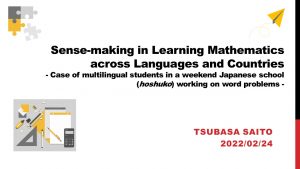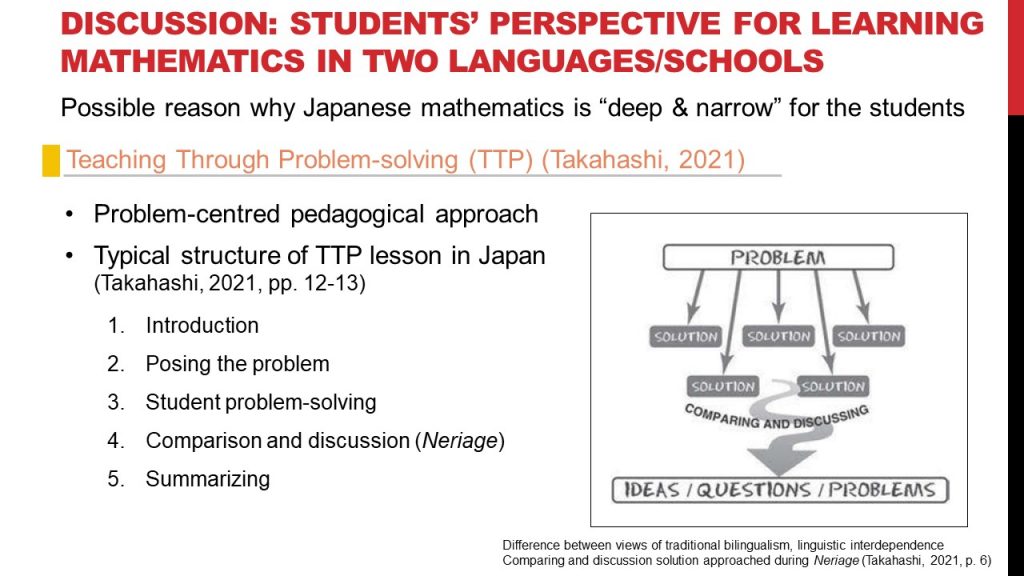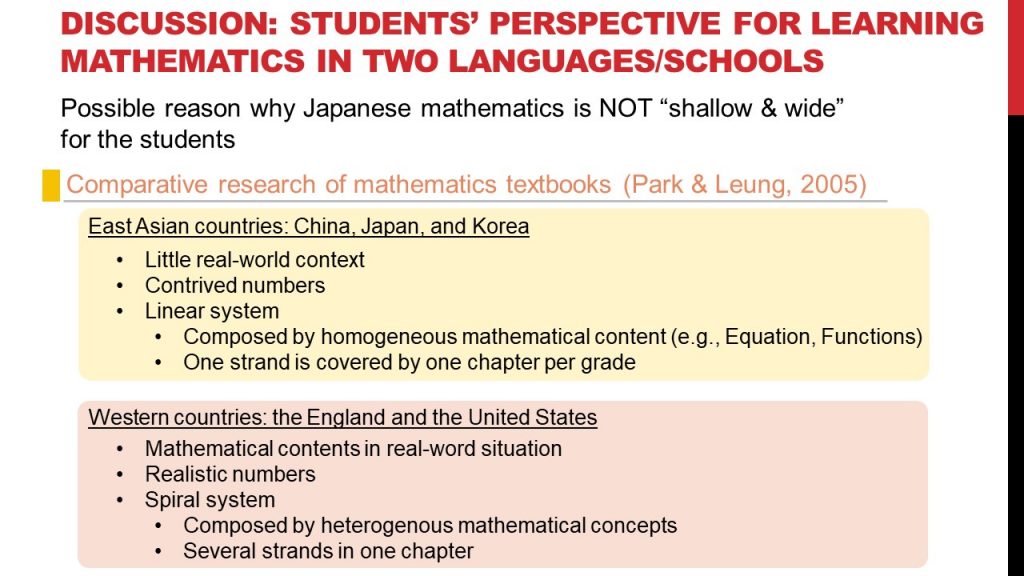Presenter/Guest Speaker: Tsubasa Saito, UBC Department of Curriculum and Pedagogy Doctoral Candidate
Date: February 24th, 2022
Host: Dr Cynthia Nicol
 During the session, Tsubasa shared some of his findings from his doctoral dissertation that explores how multilingual students learn/do mathematics and how they interpret word problems in different languages. The study focuses on multilingual students who simultaneously learn at two different schools in two different languages.
During the session, Tsubasa shared some of his findings from his doctoral dissertation that explores how multilingual students learn/do mathematics and how they interpret word problems in different languages. The study focuses on multilingual students who simultaneously learn at two different schools in two different languages.
The interviews with 14 multilingual students learning in a Canadian school and a weekend Japanese school, show that some students believe there is no difference, other than languages, in learning mathematics between the two schools, whereas others describe learning mathematics as “deep” in the Japanese school, contrasting to “wide” in Canadian schools. While Japanese mathematics classrooms often explore mathematical concepts in the class that is characterized by a problem-centered approach (Takahashi, 2021), according to the students, Canadian mathematics is more applicable to real life.
These contrasting perspectives can be explained by different features of curricula and pedagogies between the two countries. Additionally, their discourses in the mathematical tasks support the idea of suspension of sense-making (Schoenfeld, 1991), and the students irregularly suspend their sense-making when creating the word problems. Lastly, this study also confirmed that students utilized their fluid and flexible language repertoire to learn/do mathematics.
Reference
Schoenfeld, A. H. (1991). On mathematics as sense-making: An informal attack on the unfortunate divorce of formal and informal mathematics. In J. F. Voss, D. N. Perkins, & J. W. Segal (Eds.), Informal reasoning and education (pp. 311–343). New York: Routledge.
Takahashi, A. (2021). Teaching mathematics through problem-solving: A pedagogical approach from Japan. New York: Routledge.


